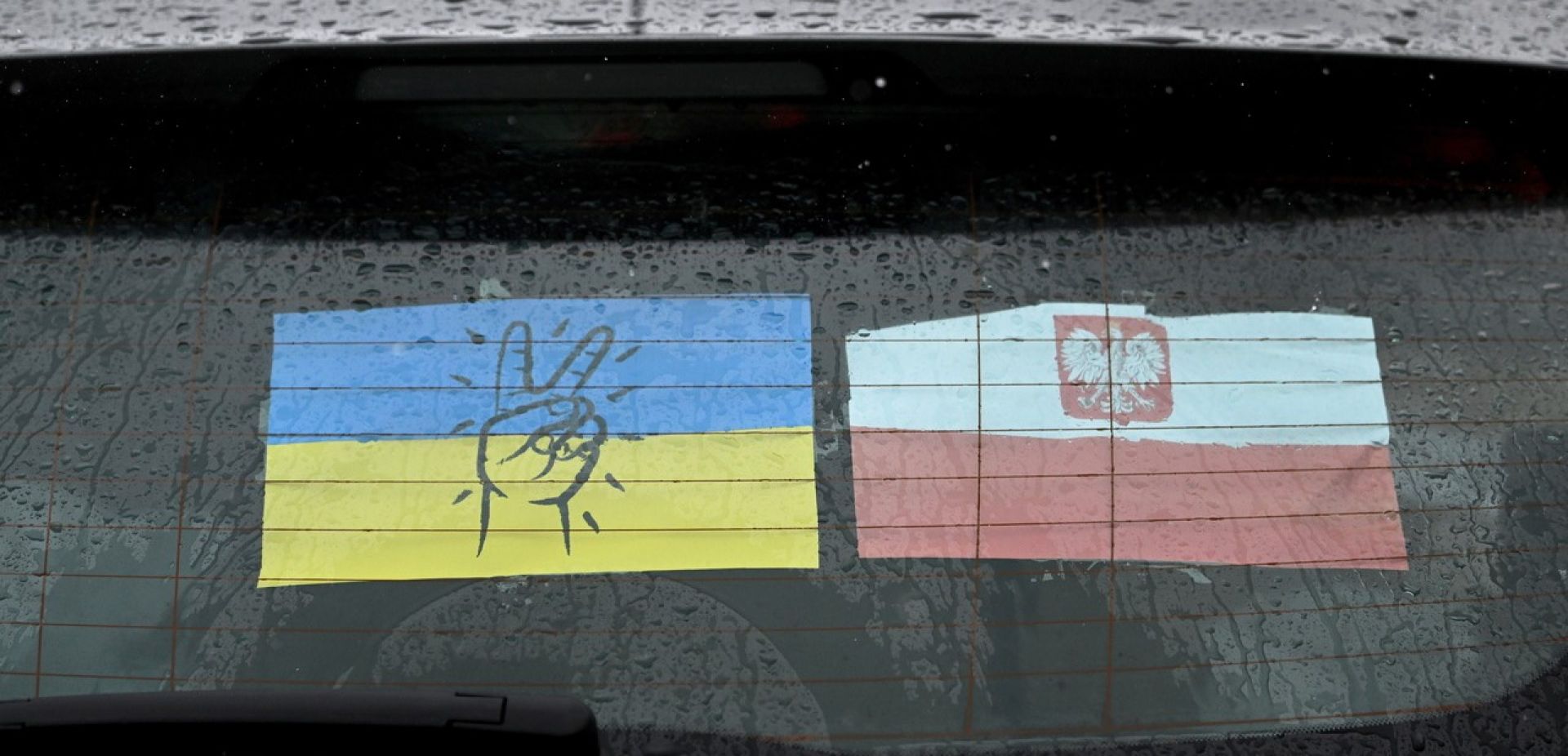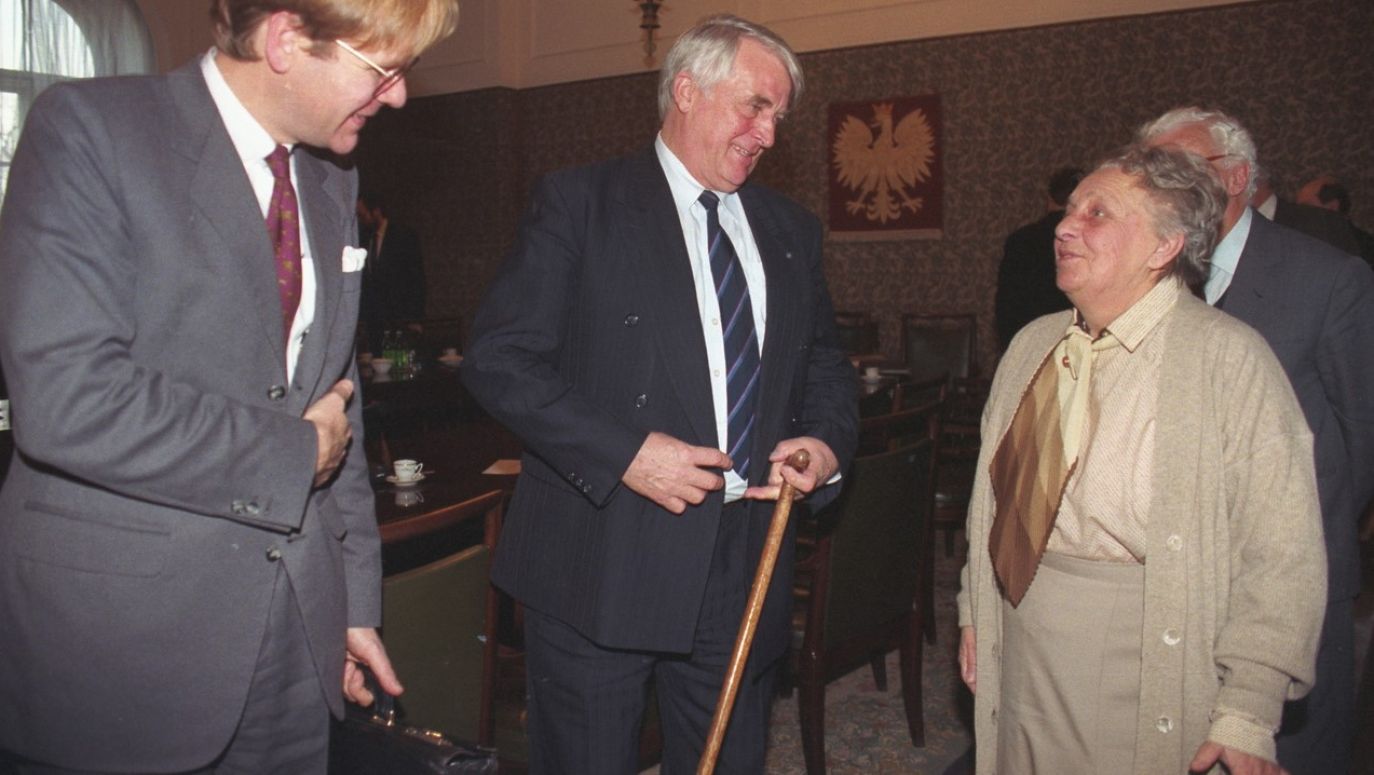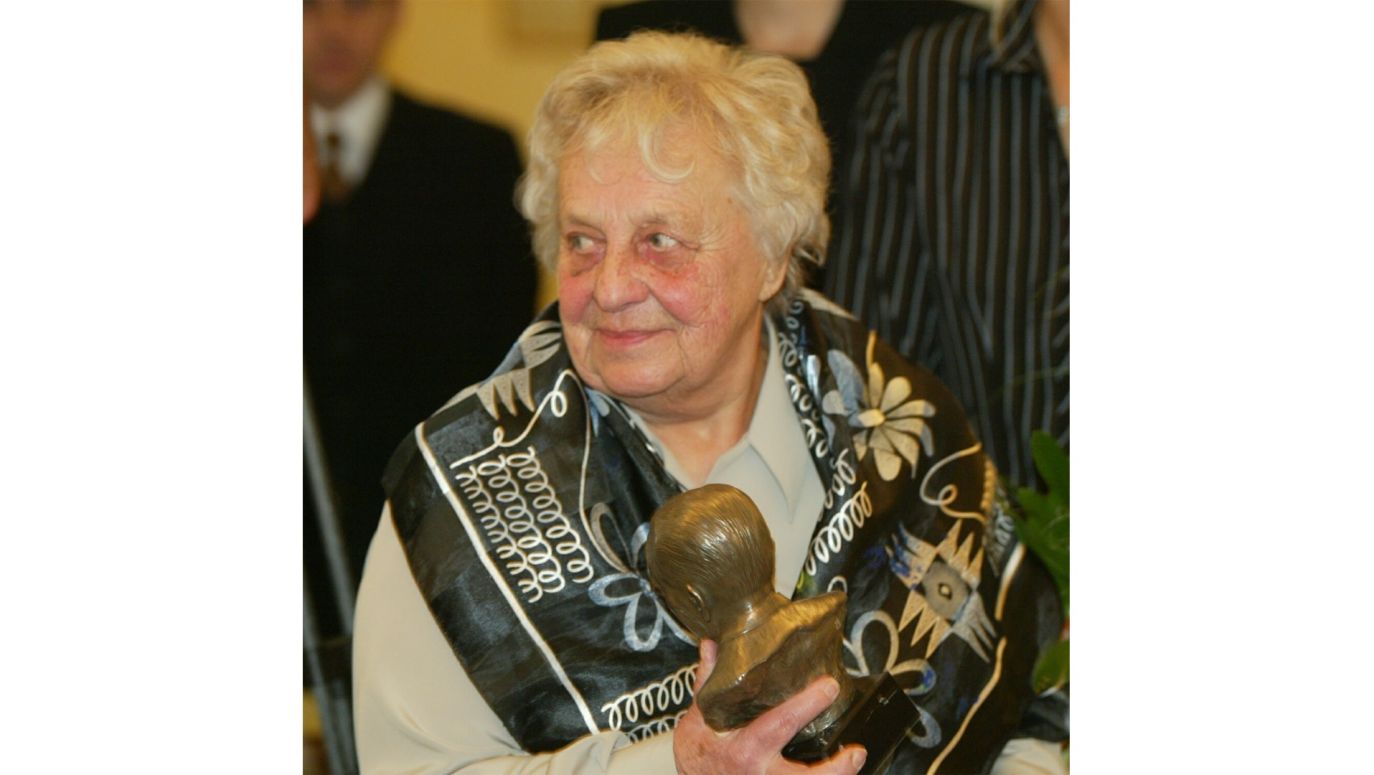In the hour of trial
20.04.2022
“Totalitarianism does not necessarily rest on physical violence; it is like a hydra that keeps regrowing its heads. Its modern variety employs first and foremost psychological violence”.
Professor Anna Pawełczyńska, who is the author of the above words, would have been a hundred years old just now, on 20 April. She lived to the respectable age of 92, and beautifully celebrated her ninetieth birthday at the famous Institute of Philosophy and Sociology of the Polish Academy of Sciences. A little earlier, but already as an elderly lady, she had won the Józef Mackiewicz Literary Award for her family story “The End of the Eastern Borderlands’ World” (“Koniec kresowego świata”), and she worked until the end of her life, writing and giving important interviews.
But the reason why it is worth remembering her on the centenary of her birth, is not because she was an outstanding intellectual, an interesting interlocutor, a social butterfly and a pillar of her community. She must be remembered because she left behind books that are still important for our identity, such as “The Heads of the Hydra” (“Głowy hydry”) and “Values and Violence” (“Wartości a przemoc”), as well as “On the Essence of National Identity” (“O istocie narodowej tożsamości”) and “The Paths of Hope” (“Ścieżkami nadziei”) – books that should be familiar to anyone dealing in public affairs.
She could tell right from wrong, and distinguish truth from falsehood – and she passed this knowledge on. And she left a clear, distinctive and unambivalent message: “I do not agree with the evil that surrounds me. I do not agree with a world in which the strong despise weakness and devour the weak with impunity. In which arms dealers have the chance to rule the whole world and spark wars that increase their wealth and power. In which falsifiers of history distort the truth and paid mercenaries-of-words enslave our consciousness. In which criminals and traitors climb the pedestals of monuments in dignified poses. In which criminals administer justice by pronouncing punishment and guilt on the innocent, and hearts and heads are unnecessary to lead nations” (“The Heads of the Hydra”, Warsaw 2004).
You don’t do that
She was born in 1922 in Pruszków near Warsaw, to an intellectual family with an Eastern Borderlands past – a fact which she dug out of archives towards the end of her life and described at length. If I repeat this date, it is to emphasise that Anna Pawełczyńska was a child of a free, independent, developing Poland, and she emphasised this to the end of her life.
She was incredibly proud of the Poland she grew and matured along with, and she talked about it till the end of her life. “At my Tomasz Zan secondary school in Pruszków, every teacher, no matter what they taught, showed us how to behave in certain situations. They knew Polish history and literature to the extent necessary to fulfil this function. Values were externalised, practised. They said: ‘You don’t do that’, and to the question ‘Why?’, there was only one answer: ‘Just because!’ They were leading by example, providing us with models of behaviour” – she said in February 2014, when Marek Krukowski and I interviewed her for the weekly magazine “Idziemy”, one of her last interviews.
She had no doubt that school and home from the time of that glorious Poland, homeland of her dreams, prepared her generation for all that they had to experience and problems to tackle, adversities they had to deal with and hope that they had to save. “I will now refer to my experience,” she told us in 2014, “the terrible times of the German occupation and the stay in the concentration camp were a time of unfailing and ruthless dichotomy between good and evil. Every person raised in an environment like mine reacted reflexively to what was evil. We were not only defending Poland against the loss of independence, but also our world against an attack of anti-values. Certain attitudes and moral behaviour were automatic, reflexive. This was a result of, of course, the upbringing my generation received in the family, school, parish, scouting or the “Sokol” gymnastics organisation. It gave such certainty about the right way to behave that in fact there was no need to discuss values”.
She knew what she was talking about, because the experience of the concentration camp was her own. She had already passed her secondary school-leaving exams (matura) in a clandestine secondary school, and also took up studies at a clandestine university. She was arrested on 15 August 1942 for taking part in the underground movement, though not the most important one – the Union of Armed Struggle (ZWZ AK), where she was a liaison officer to the head of the Obroga District, who was also her future uncle – but simply for distributing newspapers. Petite and delicate, Hania was imprisoned in Auschwitz until October 1944, then found herself in the Flössenburg concentration camp, only to bravely escape a death march in April 1945.
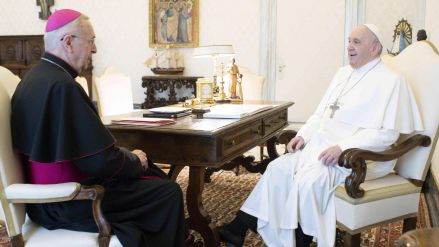
Archbishop Gądecki: The aggression against Ukraine took place 100 years after the establishment of the godless Soviet empire.
see more
In June 1945, she returned home and began her studies, where she soon found herself in the circle of Professor Stanisław Ossowski and his wife Maria, scholars of the highest moral and intellectual qualifications. Her co-worker and friend in “the Ossowskies’ circle” will be Jan Strzelecki, murdered by “unknown assailants” in 1988. Mutual support and friendship were the greatest sustenance at that time, because graduating in sociology in the years of furious Stalinism was more dangerous than promising.
In 1952, a tremendous attack was launched on professors such as Stanisław and Maria Ossowski, and its most aggressive grouping – Anna Pawełczyńska in her memoirs calls it the Union of Polish Youth’s (ZMP) ‘militia’ – was made up of Henryk Holland, Roman Zimand, Leszek Kołakjowski, Stefan Morawski, and a little later Zygmunt Bauman and Jerzy Wiatr (“Gifts of Fate” [“Dary losu”, LTW Łomianki 2013]). At the end of her life, Professor Pawełczyńska was still convinced that the effects of that “elimination of thinking people and those responsible for science in favour of the representatives of scientific socialism and all versions of ideological lies continue to this day” (“Gifts of Fate”).
Facing totalitarian violence
Thirty years after the end of the war, the horrible experiences of prison and camp, “worked through” during years of studies, research and new life experiences, resulted in the famous – world-famous – shocking book “Values and Violence”. It can be said – emphasises the German publisher of the book – that Anna Pawełczyńska “has made this period of her life the subject of scientific research”.
The inspiration for this was the cooperation with the Cracow milieu creating the “Medical Review – Auschwitz”, in which the leading role was played by Prof. Antoni Kępiński, an outstanding psychiatrist and promoter of research on the effects of staying in concentration camps (today wrongly shelved, although it should be a flagship project in the face of various types and varying quality of camp, gulag and Holocaust research, mainly American). The second leader was Dr. Stanisław Kłodziński, also a former Auschwitz prisoner, with whom – as it turned out at the time – Anna Pawełczyńska was connected by an “unconscious” wartime acquaintance, because Dr. Kłodziński was in the camp conspiracy the recipient of reports prepared by female prisoners at the Warsaw Pawiak prison about children and women deported by the Germans.
Anna Pawełczyńska was a sociologist to the fullest, a sociologist of culture, although she was also attracted to other areas of life and research. In her PhD dissertation (1962) she dealt with juvenile delinquency, and in 1966 she received her habilitation (Polish “professor’s status”) on the basis of the dissertation “Dynamics of cultural changes in rural areas”. After 1956, she founded a social diagnostics section at the Crooked Circle Club, which in 1958 made it possible to establish the Public Opinion Research Centre at Polskie Radio, and Pawełczyńska became its director.
“The Centre for Public Opinion Research was, in the Ostblok countries, i.e. in the Soviet zone, the first and for a long time the only institution of this kind,” Teresa Bochwic said in 2017 at a conference in Lublin devoted to Professor Anna Pawełczyńska. She pointed out that “it was clear that without membership in the PZPR (Polish United Workers’ Party), Pawełczyńska could not have become the director of OBOP (Centre for Public Opinion Research)”. Indeed, in 1958, on the wave of the so-called “renewal”, Anna Pawełczyńska joined the party – “she allowed herself be taken in by it”, as her trusted friend advocate Jan Olszewski commented in a conversation with Teresa Bochwic – but in 1964, due to the pressure on OBOP, she left the PZPR. Her experience as a social diagnostician came in handy when, in the 1980s, together with several friends, she prepared reports on the state of Poland for Pope John Paul II, which were deeply hidden from any possibility of unmasking.
The Heads of the Hydra
In 2004, Professor Anna Pawelczynska, already a pensioner for many years – although very active, as she chaired the Supervisory Board of the Foundation for Polish-German Reconciliation in 1992-96 – published her famous book “The Heads of the Hydra”, with a significant subtitle: “on the perversity of contemporary evil”. She writes in the introduction that she prepared the first draft of the book as early as 1988, and then several texts over the course of several years, but “it took me a long time to find the right concept for the whole thing”. Several years before the Smoleńsk catastrophe, before the Russian aggression in Crimea – not to mention the current war! – the professor writes that “the book is a warning. It encourages reflection on the causes and forms of violence which affects whole nations. Its instigators and perpetrators remain unpunished because they are collective, faceless. They are also protected by powerful interest groups that have the means to set both moral and legal standards.”
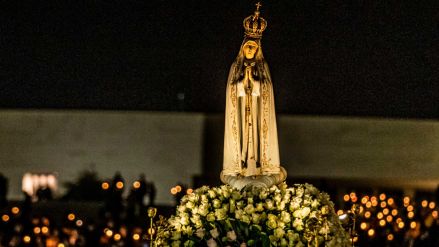
On Friday at 5pm, Pope Francis performed the Act of Consecration of Russia and Ukraine to the Immaculate Heart of Mary
see more
For those unfamiliar with this text, it is a must, if only because of the chapter on “The Roots of Evil”, and within it, the subsection on “the process of enslaving the consciousness”, with a discussion of the strategy of disinformation, its methods and functions. But most important of all are the reflections on the fundamental meaning of good and evil, on relativism in the sphere of morality, which ‘contributes to the destruction of the human person. By taking away the moral backbone of the person, it turns them into a shapeless jelly which, through skilful manipulation, can be given any form and directed in any way. The nature of social bonds can also be changed. By disorganising those bonds between people which are based on permanent moral values, one opens the way to and sanctions all forms of violence. This is the basis on which different varieties of totalitarianism take shape" (“The Heads of the Hydra”, Test Publishing House, Lublin 2004).
And yet – astonishingly – Anna Pawełczyńska, while showing “the pathways and wastelands of human thought”, remains not so much an optimist as she only leaves herself – and us – up to hope. She died in 2014, so she did not live to see the return to power of a formation that undertook the struggle for our identity and its material security. At that time, in 2004, she wrote that “we are observing in Poland a process of shaken confidence in all social and political slogans. Ever narrower group of readers of daily newspapers succumb to them, who manifest their choice of political idols and comments by buying a chosen newspaper and believing in the words they read”.
But in 2014, in our interview, hope was given to her by “small social groups and small environments, capable of properly recognising reality and living in an emotional order that gives strength to resist anti-values. These groups – she told us – should not only shape values, but also create small defence systems based on solidarity and mutual aid, providing support in difficult situations”. She was of the opinion that “community groups should also prepare themselves for the fact that if a great challenge comes along, such as that of Solidarity (Polish trade union), they will spontaneously join together to respond to it. They should be that layer of the nation that is mentally and emotionally mature and has the necessary knowledge, which will take responsibility for the fate of Poland in the hour of trial”.
“And nobody knows what kind of test it will be and when it will happen” – she wrote in 1994 in the afterword to the first edition of “Values and Violence” after many years. I dare not elaborate on this thought and put it into concrete terms. It would be an oversimplification to say that it is enough to look around. Therefore, I will only repeat my appeal that on the centenary of Professor Anna Pawłczyńska’s birth you should reach for her books, because they have not aged a bit. And perhaps they are even more up-to-date.
– Barbara Sułek-Kowalska
– Translated by Jan Ziętara
